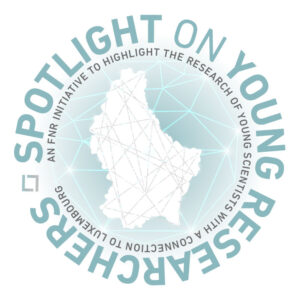BACK TO RESEARCH WITH IMPACT: FNR HIGHLIGHTS
BACK TO RESEARCH WITH IMPACT: FNR HIGHLIGHTS
Melanoma is a rare type of skin cancer, but it is the deadliest type – and incidence is on the rise. Metastatic melanoma has seen a rapid emergence in drug resistance: After a few months, treatment stops working and tumours begin to grow again. Molecular biologists are working to understand why this happens.
Cutaneous melanoma is a skin cancer type that develops from melanocytes – the pigment producing cells in the upper layer of our skin. It can be caused by a range of factors including prolonged sun exposure and genetic mutations.
Around half of melanoma patients harbour an activating mutation in a protein called BRAF, which helps the disease progress by promoting the growth and survival of cancer cells.
This knowledge has enabled scientists to developed anti-cancer therapies for metastatic melanoma that specifically target this mutated protein, known as targeted therapies. These therapies have proven to be effective in patients with advanced melanoma: they prevent the disease from progressing and quickly lead to a significant reduction of tumour growth.
There is a ‘but’: After a few months, the drugs stop working and the tumours return, leaving patients with even more limited options, and often with lethal consequences.
Why does something that worked so well just stop being effective?
“Over the past couple of years, many mechanisms have been described as a potential cause for therapy resistance,” explains molecular biologist Dr Ines Kozar from the University of Luxembourg, adding:
“Melanoma tumours display a high mutational burden, and many genes and proteins that regulate growth and survival of cells are rewired during treatment, which makes it difficult to pinpoint what exactly causes resistance. Consequently, the emergence of resistance remains a serious clinical issue.”


Looking for the answer in microRNAs
To better understand the molecular mechanisms that cancer cells use to resist current anti-cancer therapies, Ines and colleagues have investigated the role and the function of a specific class of small non-coding RNA molecules, called microRNAs.
“As microRNAs regulate the expression of many protein-coding genes, and are often deregulated in cancer cells, they inevitably contribute to the development of resistance to therapies. We have analysed and compared microRNAs in melanoma cells that respond to treatment and those that are resistant to treatment, in order to identify networks of microRNAs and their target genes, which could be therapeutically targeted to delay or prevent the development of resistance in the future.”
The scientists have been able to identify groups of microRNAs and their corresponding target genes, which they found were heavily deregulated in drug-resistant compared to drug-sensitive melanoma cells. The researchers were also able to uncover additional layers of complexity regarding microRNA-mediated gene regulation – of particular interest for complex and multifactorial diseases, such as cancer.
Dr Ines Kozar is a Postdoc at the University of Luxembourg’s Department of Life Sciences and Medicine. Ines’s project is part of the FNR-funded Cancer Biology (CANBIO) PRIDE Doctoral Training Unit (DTU), which brings together 12 Luxembourg-based research teams from different institutions with a variety of specialties.
MORE ABOUT DR INES KOZAR
On what drives her a scientist
“I have always displayed an untamed curiosity about how the world around us functions, and I have always enjoyed solving problems by collecting and analysing clues and evidence. The job of a researcher is similar to that of a detective: the disease is a crime scene, and the different molecules that we study are our suspects. Consequently, pursuing a career in a science-related environment seemed like the most natural path to follow.”
On choosing Luxembourg as a research destination
“As a Luxembourg national originally from Montenegro, I decided to perform my research in Luxembourg mainly based on the research topic that I was particularly interested in. In addition, working in Luxembourg – close to my family and friends – was of course a bonus. Over the past couple of years, Luxembourg has attracted brilliant national and international researchers, which on a daily basis work to solve a plethora of scientific issues that are of high importance for our society. Although the research in Luxembourg is still young, the quality of its scientific output has been remarkable, and it has a promising future ahead.”
On working with others
“Science is not done alone, and it is indeed through talking and exchanging ideas with others, that progress is made. For instance, thanks to our collaborators from the University of Florida, who welcomed me in their lab for a couple of months, I learned a specific technique that allowed me to generate data, which largely contributed to advancement of my PhD project. From supervisors, colleagues and collaborators to family and friends, anyone can have an impact on one’s research.”
On finding the unexpected
“We observed that some microRNAs interacted with their target genes in a manner, which deviated from our current textbook knowledge. This unexpected observation led us to go from studying drug resistance mechanisms to having a closer look at the microRNA function itself. To do so, we used a special technique, which allowed us to physically connect RNA molecules that are interacting with each other, and to characterize these interactions by computationally analysing the hybrid sequences that were generated in the lab.”
Photos: Ines Kozar
About Spotlight on Young Researchers
Spotlight on Young Researchers is an FNR initiative to highlight early career researchers across the world who have a connection to Luxembourg, with nearly 100 features published since 2016.

